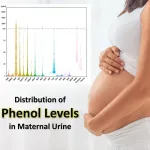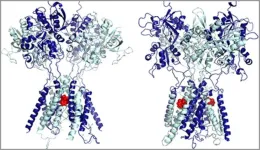(Press-News.org) The more lottery tickets you buy, the higher your chances of winning, but spending more than you win is obviously not a wise strategy. Something similar happens in AI powered by deep learning: we know that the larger a neural network is (i.e., the more parameters it has), the better it can learn the task we set for it. However, the strategy of making it infinitely large during training is not only impossible but also extremely inefficient. Scientists have tried to imitate the way biological brains learn, which is highly resource-efficient, by providing machines with a gradual training process that starts with simpler examples and progresses to more complex ones—a model known as curriculum learning. Surprisingly, however, they found that this seemingly sensible strategy is irrelevant for overparameterized (very large) networks.
A new study in the Journal of Statistical Mechanics: Theory and Experiment (JSTAT) sought to understand why this “failure” occurs, suggesting that these overparameterized networks are so “rich” that they tend to learn by following a path based more on quantity (of resources) than quality (input organized by increasing difficulty). This might actually be good news, as it suggests that by carefully adjusting the initial size of the network, curriculum learning could still be a viable strategy, potentially promising for creating more resource-efficient, and therefore less energy-consuming, neural networks.
We are in a moment of great excitement toward neural network-based AI like ChatGPT: every day, a new bot or feature emerges that everyone wants to try, and the phenomenon is also growing in scientific research and industrial applications. This requires increasing computing power—and, therefore, energy consumption—and the concerns regarding both the energy sources needed and the emissions produced by this sector are on the rise. Making this technology capable of doing more with less is thus crucial.
Neural networks are computational models made up of many “nodes” performing calculations, with a distant resemblance to the networks of neurons in biological brains, capable of learning autonomously based on the input they receive, for example, they “see” a vast number of images and learn to categorize and recognize content without direct instruction.
Among experts, it is well known that the larger a neural network is during the training phase (i.e., the more parameters it uses), the more precisely it can perform the required tasks. This strategy is known in technical jargon as the Lottery Ticket Hypothesis and has the significant drawback of requiring a massive amount of computing resources, with all the associated problems (increasingly powerful computers are needed, which demand more and more energy).
To find a solution, many scientists have looked at where this type of problem appears to have been, at least partially, solved: biological brains. Our brains, with only two or three meals a day, can perform tasks that require supercomputers and a huge amount of energy for a neural network. How do they do it?
The order in which we learn things might be the answer. “If someone has never played the piano and you put them in front of a Chopin piece, they’re unlikely to make much progress learning it,” explains Luca Saglietti, a physicist at Bocconi University in Milan, who coordinated the study. “Normally, there’s a whole learning path spanning years, starting from playing ‘Twinkle Twinkle Little Star’ and eventually leading to Chopin.”
When input is provided to machines in an order of increasing difficulty, it is called curriculum learning. However, the most common way to train neural networks is to feed them input randomly into highly powerful, overparameterized networks. Once the network has learned, it is possible to reduce the number of parameters—even lower than 10% of the initial amount—because they are no longer used. However, if you start with only 10% of the parameters, the network fails to learn. So, while an AI might eventually fit into our phone, during training, it requires massive servers.
Scientists have wondered whether curriculum learning could save resources. But research so far suggests that for very overparameterized networks, curriculum learning seems irrelevant: performance in the training phase does not seem to be improved.
The new work by Saglietti and colleagues attempted to understand why. “What we’ve seen is that an overparameterized neural network doesn’t need this path because, instead of being guided through learning by examples, it’s guided by the fact that it has so many parameters—resources that are already close to what it needs,” explains Saglietti. In other words, even if you offer it optimized learning data, the network prefers to rely on its vast processing resources, finding parts within itself that, with a few tweaks, can already perform the task.
This is actually good news, as it does not mean that networks cannot take advantage of curriculum learning, but that given the high number of initial parameters, they are pushed in a different direction. In principle, therefore, one could find a way to start with smaller networks and adopt curriculum learning. “This is one part of the hypothesis explored in our study,” Saglietti explains. “At least within the experiments we conducted, we observed that if we start with smaller networks, the effect of the curriculum—showing examples in a curated order—begins to show improvement in performance compared to when the input is provided randomly. This improvement is greater than when you keep increasing the parameters to the point where the order of the input no longer matters.”
The paper Tilting the Odds at the Lottery: the Interplay of Overparameterisation and Curricula in Neural Networks is part of the JSTAT Machine Learning 2024 collection, and has been first presented at the 41st International Conference on Machine Learning ICML 2024 held in Vienna in July 2024.
END
Neural networks: You might not need to buy every ticket to win the lottery
A study in JSTAT explores how to make neural networks closer to the energy efficiency of biological brains
2024-11-19
ELSE PRESS RELEASES FROM THIS DATE:
Healthy New Town: Revitalizing neighborhoods in the wake of aging populations
2024-11-19
Planned suburban residential neighborhoods in metropolitan areas known as new towns were initially developed in England. The new town movement spread from Europe to East Asia, such as to Japan, South Korea, Hong Kong, and Singapore. In Japan alone, 2,903 New Towns were built, but many experienced rapid population decline and aging in the 40 years after their development. Therefore, they changed into old new towns and had to transform their facilities.
Dr. Haruka Kato, a junior associate professor at Osaka Metropolitan ...
High exposure to everyday chemicals linked to asthma risk in children
2024-11-19
A new study from researchers at Kumamoto University sheds light on a potential link between exposure to certain everyday chemicals during pregnancy and the development of asthma in children. The study analyzed data from over 3,500 mother-child pairs as part of the Japan Environment and Children’s Study (JECS), a large-scale nationwide research project.
Key Findings:
High levels of butylparaben, a chemical commonly used in personal care products like lotions and shampoos, during early pregnancy were associated with a 1.54-fold increase in the odds of asthma development in children ...
How can brands address growing consumer scepticism?
2024-11-19
Transparency and effective communication are critical for brands to gain and keep consumer trust according to new research.
The University of Adelaide’s Dr Kate Sansome, from the Adelaide Business School has led a study which suggests that consumers want brands to be transparent about topics that impact them.
“As sociopolitical issues become topical in the news and social media, brands are expected to be transparent about them; for example, as consumers face cost-of-living pressures, they will expect brands to be transparent about this issue,” says Dr Sansome, who conducted the study with the Professor Jodie Conduit and Dr ...
New paradigm of quantum information technology revealed through light-matter interaction!
2024-11-19
□ A research team led by Professor Jaedong Lee from the Department of Chemical Physics of DGIST (President Kunwoo Lee) has introduced a novel quantum state and a pioneering mechanism for extracting and controlling quantum information using exciton and Floquet states.
□ Collaborating with Professor Noejung Park from UNIST’s Department of Physics (President Chongrae Park), the team has, for the first time, demonstrated the formation and synthesis process of exciton and Floquet states, which arise from light-matter interactions in two-dimensional semiconductors. This study captures quantum information in real-time as it unfolds through entanglement, offering ...
MSU researchers find trees acclimate to changing temperatures
2024-11-19
Images
Climate change is a persistent and growing challenge to plant life on our planet. Changes to the environment that plants are unaccustomed to affect how they grow, putting much at risk. Increasingly, plant scientists are trying to determine how these environmental changes will impact plant life and whether plants will be able to acclimate to a new status quo.
Researchers from the Walker lab at the Michigan State University-U.S. Department of Energy Plant Research Laboratory, or PRL, are looking at how paper birch trees adapt to changing environments based on how they manage a vital plant process called photorespiration.
“If ...
World's first visual grading system developed to combat microplastic fashion pollution
2024-11-19
Over 14 million tonnes of microplastics are estimated to be lying on the ocean floor with the fashion industry among the worst pollutants.
But a new project led by textile experts at Heriot-Watt University in the Scottish Borders, is aiming to make fashion labels and consumers alike, more environmentally aware when manufacturing and buying new clothes.
For four years, a small team headed by Dr Lisa Macintyre, associate professor of textiles at the University’s School of Textiles and Design in the Galashiels campus, has overseen painstaking ...
Teenage truancy rates rise in English-speaking countries
2024-11-19
Working paper | Quantitative data analysis | People
Truancy rates have risen faster in developed English-speaking countries since the Covid-19 pandemic than in non-English-speaking countries, according to a new working paper by UCL researchers.
Teenage girls are also increasingly more likely to skip school than boys across Anglophone countries.
In 2022, 26% of all Year 11 pupils in England reported playing truant at least once in the last fortnight. This represented an increase from 2012 and 2018, the previous data capture points, when the figure was at 18% each time.
In the same year (2022), 29% of Year 11 girls in England reported skipping school in the past ...
Cholesterol is not the only lipid involved in trans fat-driven cardiovascular disease
2024-11-18
LA JOLLA (November 14, 2024)—Excess cholesterol is known to form artery-clogging plaques that can lead to stroke, arterial disease, heart attack, and more, making it the focus of many heart health campaigns. Fortunately, this attention to cholesterol has prompted the development of cholesterol-lowering drugs called statins and lifestyle interventions like dietary and exercise regimens. But what if there’s more to the picture than just cholesterol?
New research from Salk Institute scientists describes how another class of lipids, called sphingolipids, contributes to arterial plaques and atherosclerotic cardiovascular disease ...
Study: How can low-dose ketamine, a ‘lifesaving’ drug for major depression, alleviate symptoms within hours? UB research reveals how
2024-11-18
BUFFALO, N.Y. — University at Buffalo neuroscientists have identified the binding site of low-dose ketamine, providing critical insight into how the medication, often described as a wonder drug, alleviates symptoms of major depression in as little as a few hours with effects lasting for several days.
Published in September in Molecular Psychiatry, the UB discovery will also help scientists identify how depression originates in the brain, and will stimulate research into using ketamine and ketamine-like drugs for other ...
New nasal vaccine shows promise in curbing whooping cough spread
2024-11-18
As whooping cough cases rise in the U.S., a new nasal vaccine developed by Tulane University may hold the key to reducing the spread of the highly contagious respiratory disease.
Current pertussis vaccines are widely used and effective at preventing whooping cough, caused by the Bordetella pertussis bacteria. However, the vaccines fail to clear bacteria from the upper respiratory tract, allowing even vaccinated individuals to spread the disease.
The new vaccine combines the traditional pertussis antigens with an innovative ...
LAST 30 PRESS RELEASES:
ASU researchers to lead AAAS panel on water insecurity in the United States
ASU professor Anne Stone to present at AAAS Conference in Phoenix on ancient origins of modern disease
Proposals for exploring viruses and skin as the next experimental quantum frontiers share US$30,000 science award
ASU researchers showcase scalable tech solutions for older adults living alone with cognitive decline at AAAS 2026
Scientists identify smooth regional trends in fruit fly survival strategies
Antipathy toward snakes? Your parents likely talked you into that at an early age
Sylvester Cancer Tip Sheet for Feb. 2026
Online exposure to medical misinformation concentrated among older adults
Telehealth improves access to genetic services for adult survivors of childhood cancers
Outdated mortality benchmarks risk missing early signs of famine and delay recognizing mass starvation
Newly discovered bacterium converts carbon dioxide into chemicals using electricity
Flipping and reversing mini-proteins could improve disease treatment
Scientists reveal major hidden source of atmospheric nitrogen pollution in fragile lake basin
Biochar emerges as a powerful tool for soil carbon neutrality and climate mitigation
Tiny cell messengers show big promise for safer protein and gene delivery
AMS releases statement regarding the decision to rescind EPA’s 2009 Endangerment Finding
Parents’ alcohol and drug use influences their children’s consumption, research shows
Modular assembly of chiral nitrogen-bridged rings achieved by palladium-catalyzed diastereoselective and enantioselective cascade cyclization reactions
Promoting civic engagement
AMS Science Preview: Hurricane slowdown, school snow days
Deforestation in the Amazon raises the surface temperature by 3 °C during the dry season
Model more accurately maps the impact of frost on corn crops
How did humans develop sharp vision? Lab-grown retinas show likely answer
Sour grapes? Taste, experience of sour foods depends on individual consumer
At AAAS, professor Krystal Tsosie argues the future of science must be Indigenous-led
From the lab to the living room: Decoding Parkinson’s patients movements in the real world
Research advances in porous materials, as highlighted in the 2025 Nobel Prize in Chemistry
Sally C. Morton, executive vice president of ASU Knowledge Enterprise, presents a bold and practical framework for moving research from discovery to real-world impact
Biochemical parameters in patients with diabetic nephropathy versus individuals with diabetes alone, non-diabetic nephropathy, and healthy controls
Muscular strength and mortality in women ages 63 to 99
[Press-News.org] Neural networks: You might not need to buy every ticket to win the lotteryA study in JSTAT explores how to make neural networks closer to the energy efficiency of biological brains





